The Toaster Project: Or a Heroic Attempt to Build a Simple Electric Appliance from Scratch by Thomas Thwaites (available on amazon USA and UK.)
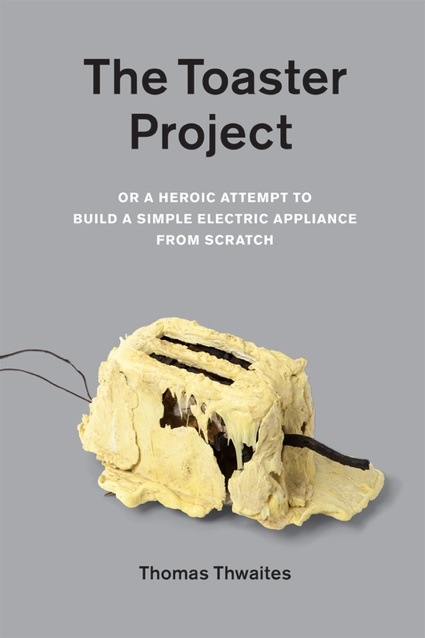
Publisher Princeton Architectural Press says: “Hello, my name is Thomas Thwaites, and I have made a toaster.” So begins The Toaster Project, the author’s nine-month-long journey from his local appliance store to remote mines in the UK to his mother’s backyard, where he creates a crude foundry. Along the way, he learns that an ordinary toaster is made up of 404 separate parts, that the best way to smelt metal at home is by using a method found in a fifteenth-century treatise, and that plastic is almost impossible to make from scratch. In the end, Thwaites’s homemade toaster– a haunting and strangely beautiful object–cost 250 times more than the toaster he bought at the store and involved close to two thousand miles of travel to some of Britain’s remotest locations. The Toaster Project may seem foolish, even insane. Yet, Thwaites’s quixotic tale, told with self-deprecating wit, helps us reflect on the costs and perils of our cheap consumer culture, and in so doing reveals much about the organization of the modern world.
A few months ago, i was in Pittsburgh with 3 other authors writing an art&science book in seven days. Luke and Jessica, the designers of the book, were sitting across the table reviewing almost almost in real time the notes and images we were sending them. At some point we all raised our head because the designers had started laughing uncontrollably while saying “brilliant! this is brilliant!” This was the Toaster effect! Thomas Thwaites’s project is mocked almost as much as it is admired. The designer has toured the world to show and discuss what is probably the most uncomely toaster that ever was created. It generated so much press, so many questions and such interest that i even suspect that Thwaites wrote the book as a catharsis, a way to get the toaster out of his life. He won’t have to tell the story again, it’s all there for us to read.
As befits the project, the book is hilarious. I never though reading about iron smelting and descents into mines would be so engrossing. You follow Thomas Thwaites’ email correspondence and phone conversations with (mostly baffled) experts, miners and other “jolly nice chaps”. Next, he is smelting iron in his mum’s microwave, trekking in the highlands of Scotland in search of a mica mine, trying to convince BP to take him on a helicopter ride so that he can collect on an oil rig the crude oil he needs to make the plastic case for his toaster, attempting to cook some plastic using potato starch, ‘stealing’ water from the Marquis of Anglesey, etc.
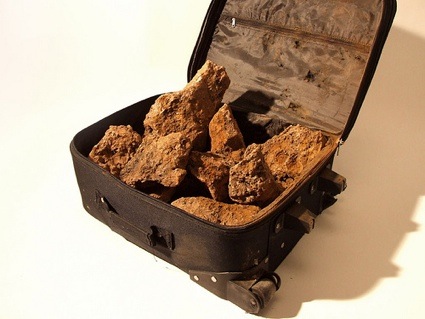 Suitcase of iron ore
Suitcase of iron ore
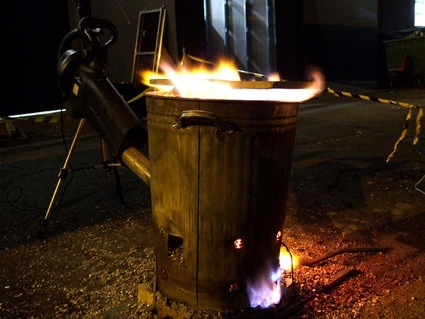 Iron smelting with leaf blower
Iron smelting with leaf blower
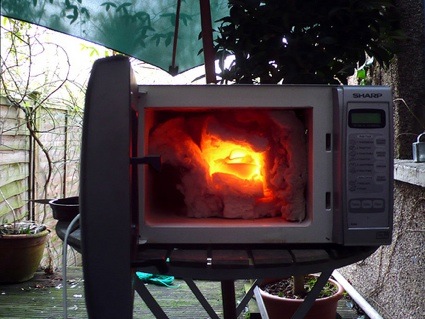 Iron smelting in microwave
Iron smelting in microwave
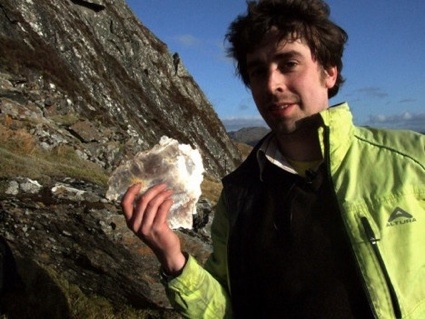 Mica harvesting in Scotland
Mica harvesting in Scotland
With his über-english self-deprecating tone, Thomas takes you from one failure to another. Yet, this accumulation of fiascoes and disappointments, which at times reads like a hybrid between the story of the dodekathlon and the script of a Woody Allen comedy, turned into an extraordinary achievement. Thwaites went through experiences none of us would ever dare to undergo just to fabricate an object that would perform the mundane function of toasting a piece of bread.
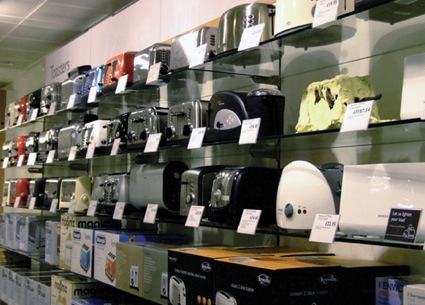
And if you prefer taking a shortcut:
